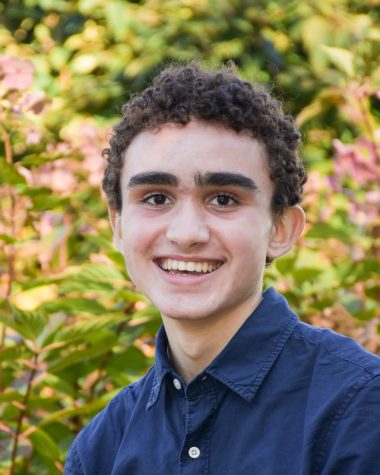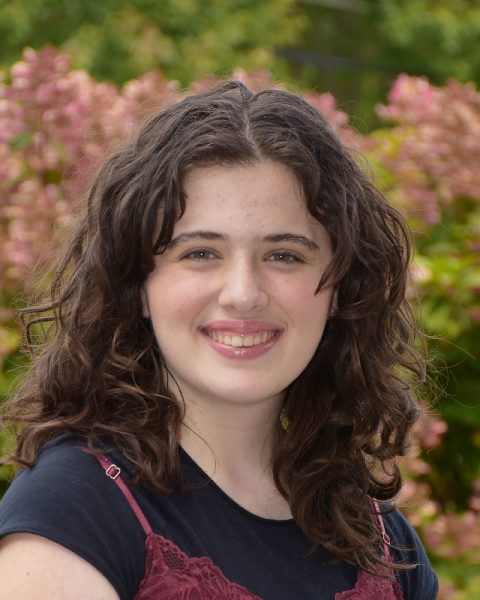School Hosts Equity In Women’s Sports Panel
March 5, 2021
In the final installment of the 16th Annual Bissell Grogan Humanities Symposium, the School invited three guests to participate in a panel discussion Monday, titled, “Equity and Women’s’ Sports.”
The School’s Varsity Girls’ Basketball Coach Lindsay Horbatuck, New England Sports Network Media Executive Celeste Gehring, and professional basketball player Shey Peddy joined Director of Auxiliary Programs Cassandra Abodeely in a conversation around Education Amendment Title IX, sexism in athletics, gender pay inequity, and empowering young women in sports.
Horbatuck, who played basketball in college at Bucknell University, spoke about Title IX, which federally prohibited sex-based discrimination at institutions that receive federal money.
“We were told we only got facilities in high school because the guys got them,” Horbatuck said.
Horbatuck shared that she wishes she had more health resources while playing sports in college. Nutrition, getting sleep, and “fueling your body” should be of importance with collegiate athletes, according to Horbatuck.
“Mental health needs to be on the forefront of people’s minds,” Horbatuck said.
For her part, Gehring played high school basketball on the boys’ team and went on to play in college at Louisiana State University. Being surrounded by male athletes in high school, Gehring said that playing womens’ basketball in college showed her how far women can come in sports. Gehring later became a Sports Broadcast Production Executive and founded Visionary Building.
“You feel like you’re a leader and you want to create a movement. You can talk about stories,” Gehring said when asked what motivates her.
Peddy addressed the community from Turkey, where she plays professional basketball. Originally from Roxbury, Massachusetts, Peddy went to Melrose High School and attended Temple University for college. She was drafted in the 2012 WNBA draft, has played overseas for 9 years, and is in her third year playing for the Phoenix Mercury team.
First hearing conversations about Title IX with the topic of equal pay and recognition, Peddy said it made her think, “We’re here too.”
In high school, Peddy said, “it was stay out of trouble or you got in trouble.” Through basketball, she found a community that supported her and wanted to keep her safe; she often played in the gym year-round during her teenage years. Now, Peddy said she feels like a veteran, with young rookies in basketball coming to her for advice.
Peddy also mentioned instances of racism she experienced while playing overseas.
“They just stare at me. They would say, ‘I’ve never seen a black person so it’s okay for me to stare,’” Peddy said. “In the U.S., we experience racism in different ways.”
All three panelists also spoke about body image issues in sports. While playing overseas in Bulgaria, Horbatuck said that there wasn’t enough support for players struggling with body image issues.
Gehring’s experience with being weighed every week had a negative effect on her fellow athletes, noting that some “[felt] like a failure” when they did not make the weight goals their coaches set for them.
According to Peddy, putting athletes on diets can cause mental stress and lead to feeling defeated. She said that her coaches would tell her, “You’re soft, you can’t handle it.” But it’s deeper than that, Peddy said.
Peddy noted the double standards that women experience with their bodies. Men can show off their figure freely, but when a female athlete does, she is sexualized and told to “put some clothes on,” according to Peddy.
“It’s hard to post a picture of your body without the stans commenting,” Peddy said, referring to the inappropriate behavior some super-fans engage in on social media.
On the topic of equal pay, Peddy shared that while the average women’s salary in the WNBA is around $250,000, many young NBA players receive million-dollar paychecks in their first years of playing. Peddy called the gap “ridiculous.”
The panelists also shared advice for what the community can do to support women in sports.
“Men can speak about it too,” Gehring said. “It doesn’t matter who you are; you can learn from anyone. If there’s a player there, the player can teach you.”
“It goes across the board for all sports. Try watching a womens’ game,” Horbatuck suggested. “Follow a WNBA or professional soccer player.”
On Wednesday, the School held a lunch meeting with Peddy on Zoom.
Editor’s Note: For an archived recording of the webinar, click here.























































